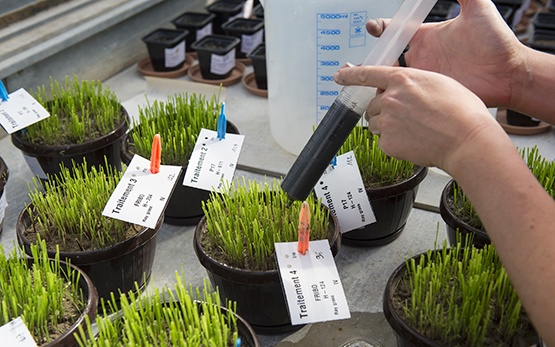The nutrition and fertilisation of agricultural crops is a key element of agricultural production. Advances leading to the production of fertilisers have had a fundamental impact on agricultural production and on the development of societies. The resultant intensive use of fertilisers has substantially modified nutrient flows at the global level, causing various environmental problems. In addition, the production of fertilisers (e.g. phosphorus) depends on resources that are not renewable on the human scale, and which must as far as possible be conserved. In spite of all this, the use of fertilisers should continue to increase in coming years in order to meet the growing needs of the global population. In this context, research into plant nutrition must supply the scientific bases enabling crops to receive an optimal supply of nutrients, with a view to achieving satisfactory harvests in terms of quantity and quality whilst limiting negative impacts on the environment.
The aim of the projects carried out in this field of activity is to suggest appropriate concepts and methods, diagnostic systems and management practices suitable for ensuring that crops receive an adequate supply of nutrients whilst conserving the stock of natural resources and preserving the quality of the environment. In order to achieve this aim, research into field-crop nutrition consists of one part applied research aiming to improve and regularly update the Swiss ‘Guidelines for Fertiliser Application in Arable and Forage Crops' (GRUDAF/DBF), and one part basic application-oriented research whose main aims are:
- to understand the processes and factors governing the transfer of nutrients from the soil solid phase to the soil solution, and from there to the plant
- to develop appropriate concepts and methods for quantifying nutrient transfer fluxes between the compartments of the soil/fertiliser/plant system in order to increase the efficiency of fertiliser use by agricultural crops and to protect the environment.






